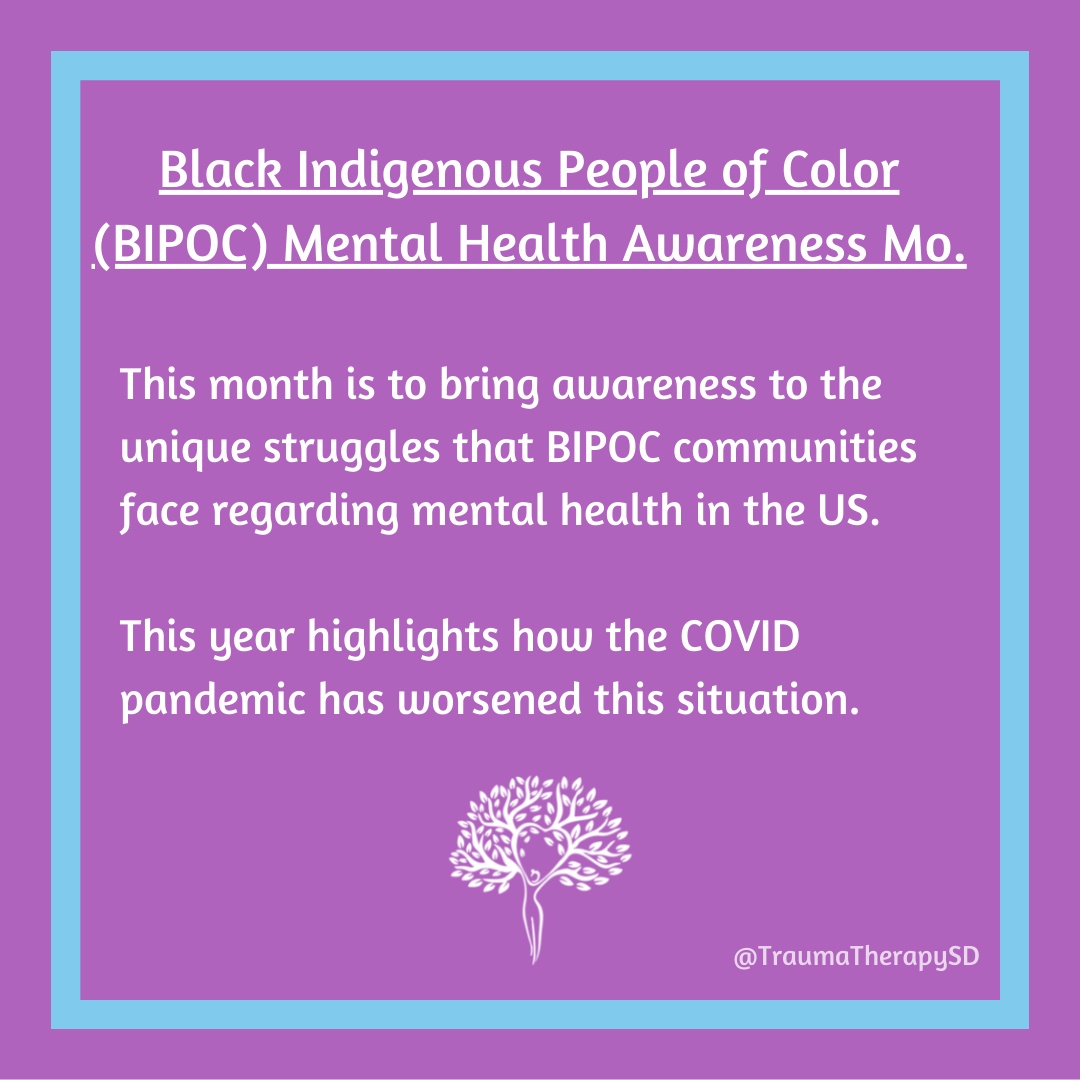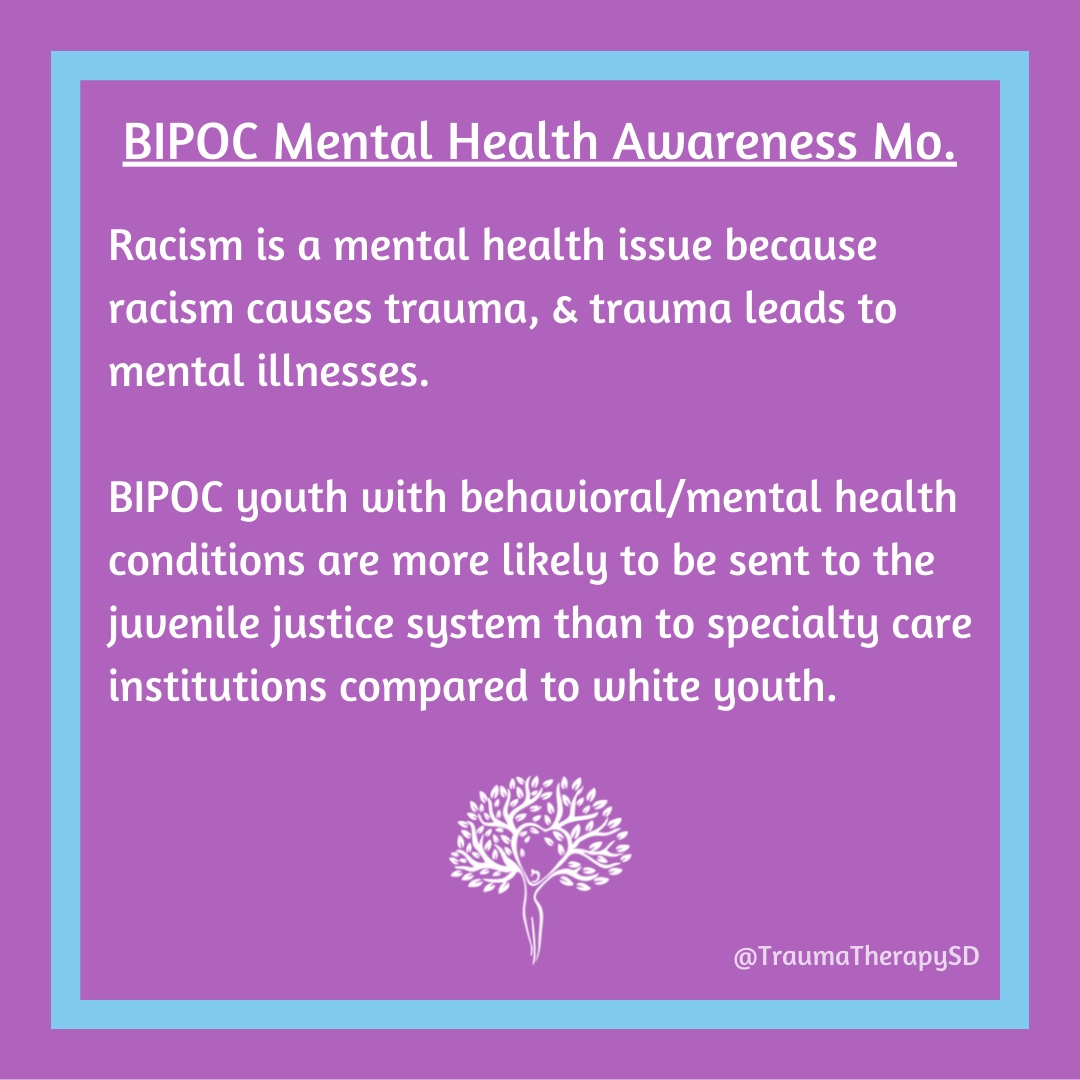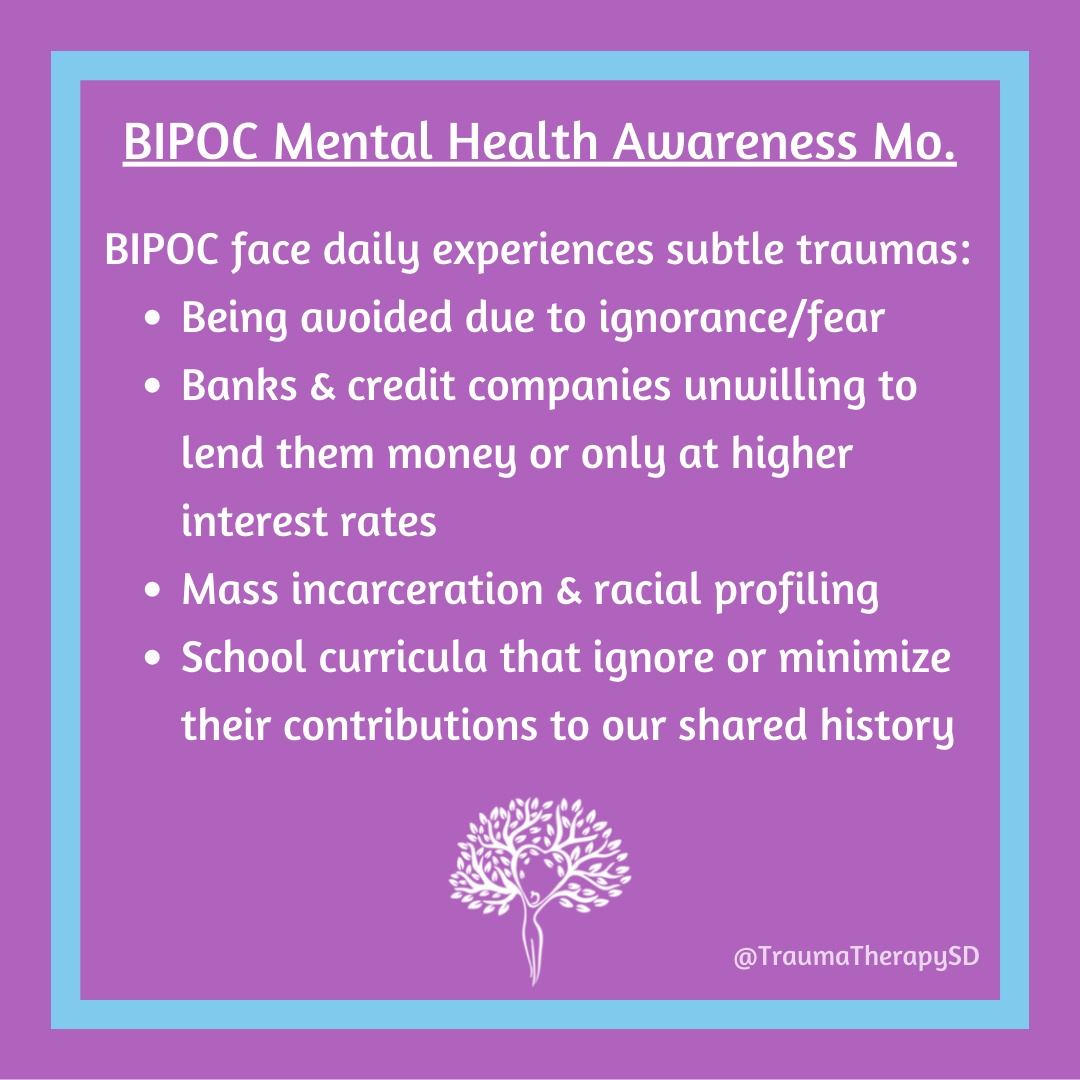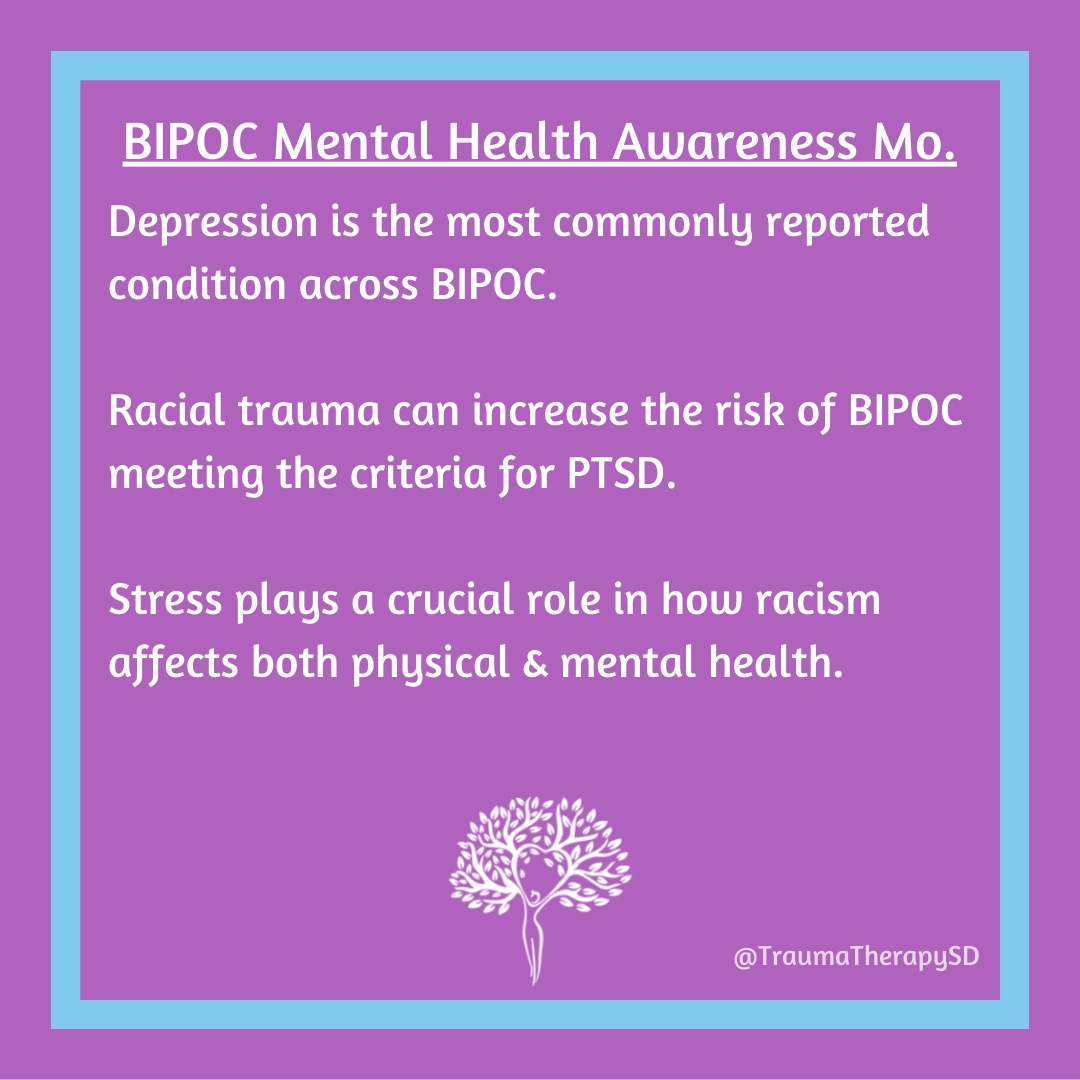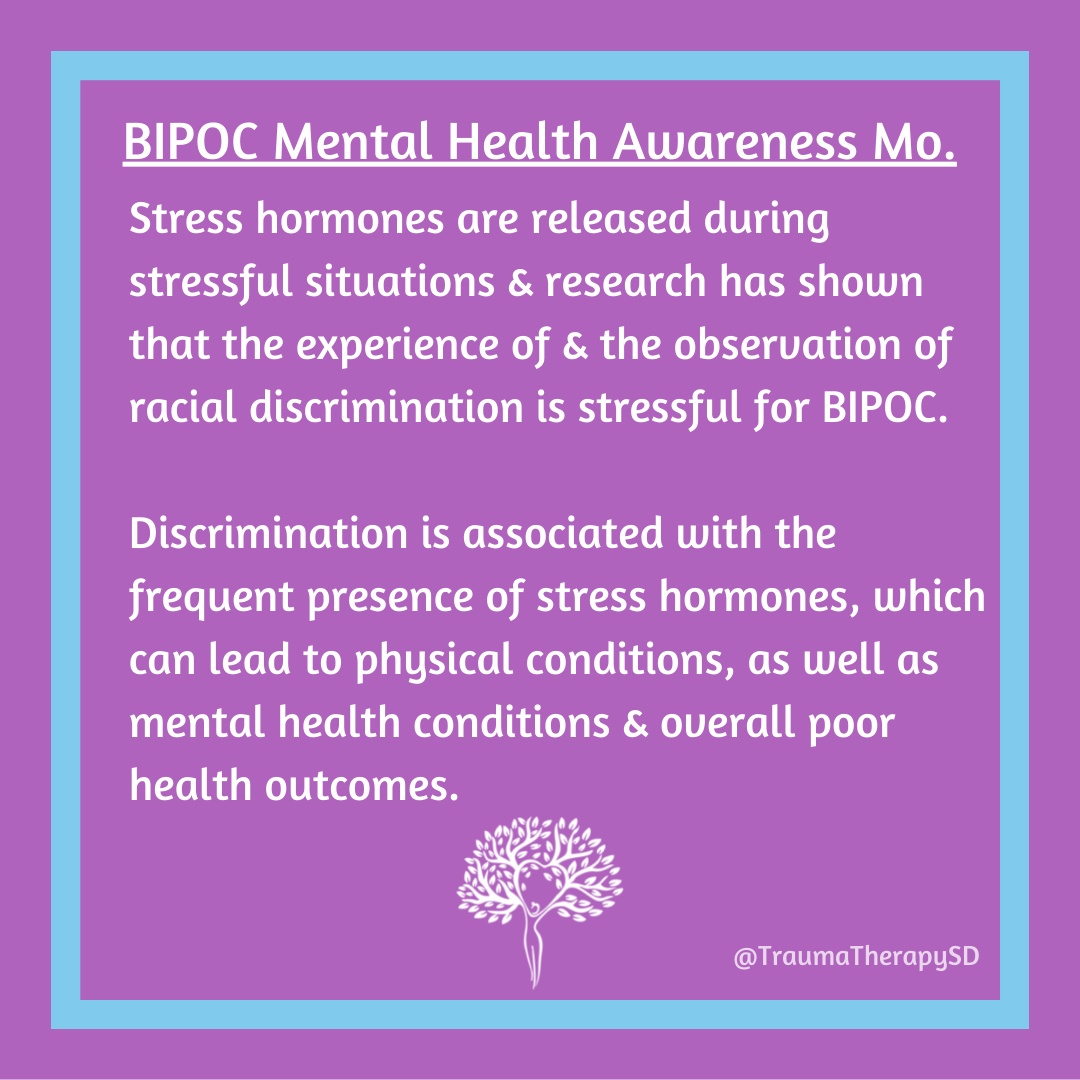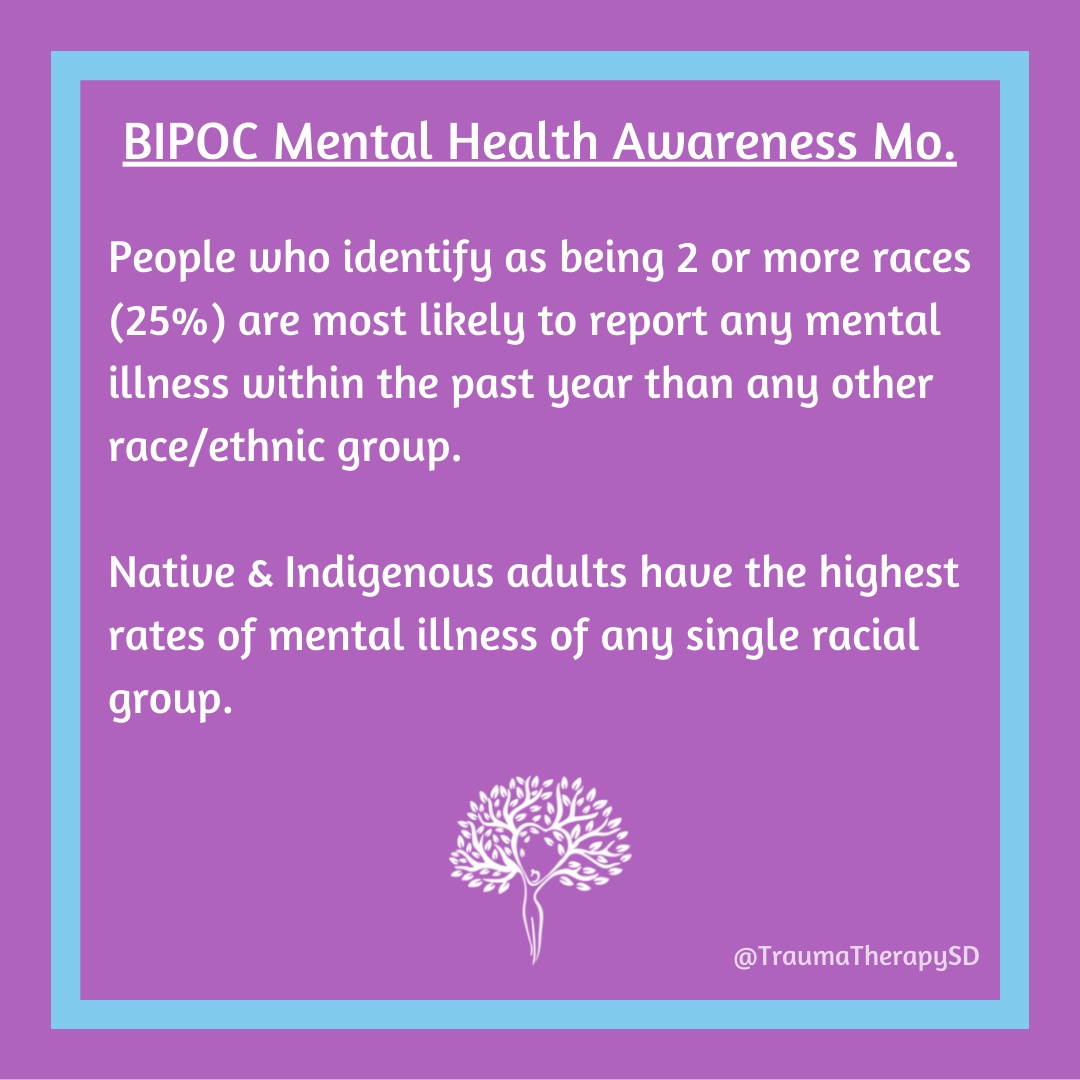National BIPOC Mental Health Awareness Mo.
Black Indigenous People of Color (BIPOC) Mental Health Awareness Mo.
This month brings awareness to the unique struggles that BIPOC communities face regarding mental health in the US. This year highlights how the COVID pandemic has worsened this situation.
Racism is a mental health issue because racism causes trauma, & trauma leads to mental illnesses.
BIPOC youth with behavioral/mental health conditions are more likely to be sent to the juvenile justice system than to specialty care institutions compared to white youth.
BIPOC face daily experiences subtle traumas:
- Being avoided due to ignorance/fear
- Banks & credit companies unwilling to lend them money or only at higher interest rates
- Mass incarceration & racial profiling
- School curricula that ignore or minimize their contributions to our shared history
Depression is the most commonly reported condition across BIPOC
Racial trauma can increase the risk of BIPOC meeting the criteria for PTSD.
Stress plays a crucial role in how racism affects both physical & mental health.
- Stress hormones are released during stressful situations & research has shown that the experience of & the observation of racial discrimination is stressful for BIPOC.
- Discrimination is associated with the frequent presence of stress hormones, which can lead to physical conditions, as well as mental health conditions & overall poor health outcomes.
Cultural incompetence among care providers contributes to under- and/or mis-diagnosis of mental illness in BIPOC.
Language differences between patient & provider, stigma of mental illness among BIPOC, & cultural presentation of symptoms are some of the many barriers to care that explain these errors in the diagnostic process.
People who identify as being 2 or more races (25%) are most likely to report any mental illness within the past year than any other race/ethnic group.
Native & Indigenous adults have the highest rates of mental illness of any single racial group.
The identities of LGBTQIA+ BIPOC are multidimensional which can compound the trauma experienced.
Sources: HHS.gov

